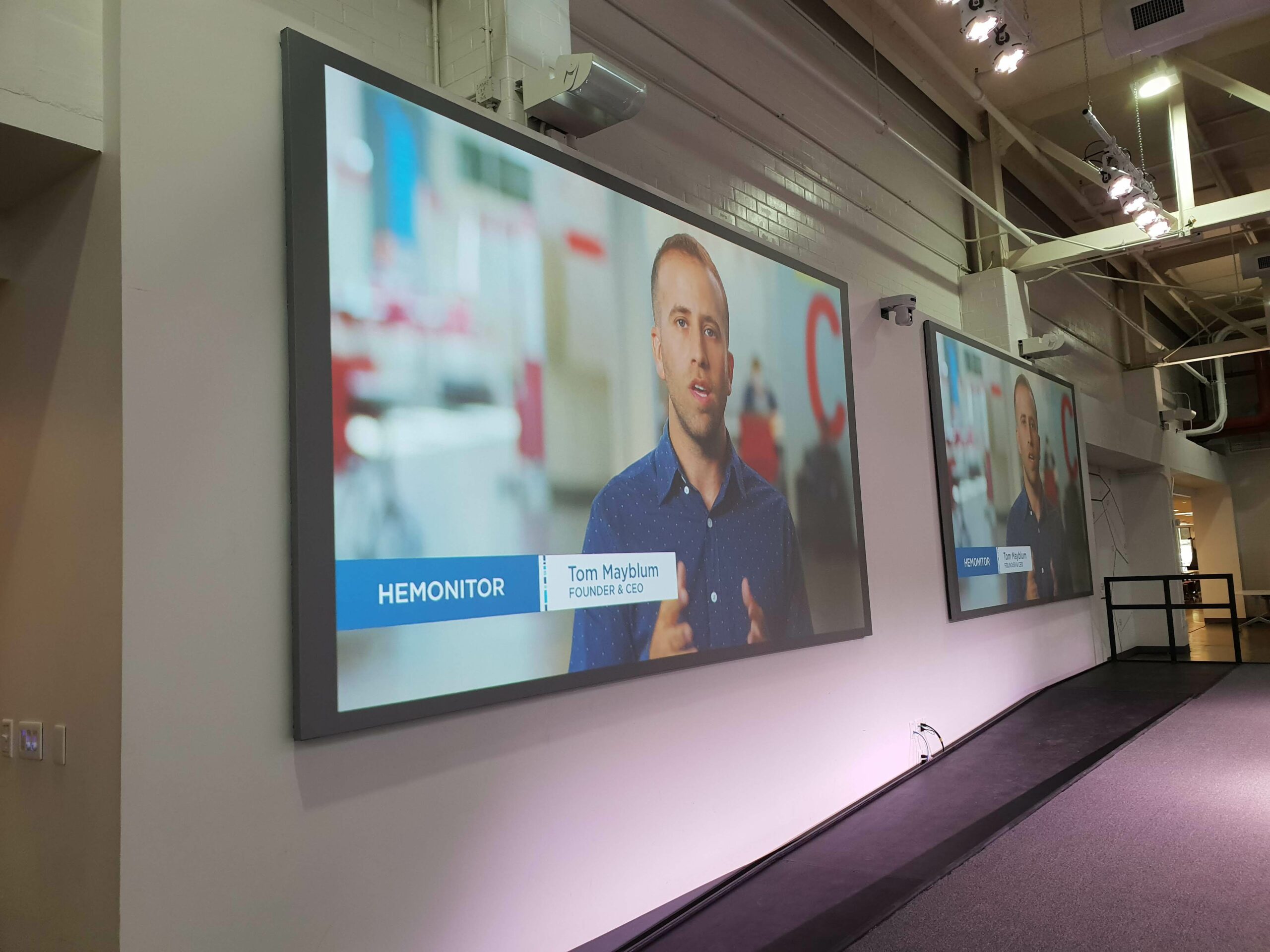Why TMCx is the Best Accelerator for Israeli Start-Ups to Work With in the US
Health Tech
Imagine a future where you go to your General Practitioner, the nurse puts the ultrasound on your body, and within minutes you are scanned and diagnosed. This future is not as far away as you might think. Sonaris is revolutionizing ultrasound imaging for primary care and home monitoring. Sonaris’ CEO, Tom Mayblum, has a background in biomedical engineering from the prestigious Technion University. He explained Sonaris’ vision of the ultrasound revolution.
“Sonaris is an AI-guided ultrasound for non-invasive clinical diagnosis. The system and technology enables a hands-free ultrasound experience and uses real-time computer vision to assess parameters and automatically detect results. Whereas a conventional ultrasound system is a manually held probe that requires a trained physician to search for images, the Sonaris device uses a wearable ultrasound combined with AI guidance to scan and detect the desired area.”
Tom also spoke about Sonaris’ path thus far, and the events that brought the company to where it is now; most notably, the time spent at the Texas Medical Center accelerator, TMCx.
Why did you choose TMCx?
As with most Israeli start-ups, Sonaris’ target market lies in the US market. After evaluating various accelerators and different incubator programs, it felt only natural for Tom and his team to apply for the TMCx accelerator, which provides a gateway to the facilities, resources and network of TMC, the world’s largest medical center.
“When you think beyond the clinical guidelines, into the financial structure of a healthcare system, there are major differences between the US and Israel – how insurance works generally over there, how healthcare providers are paid, how reimbursement is executed and so on.”
Participating in the TMCx accelerator meant being embedded within the US healthcare system, which involved going to the next level in terms of understanding how the market works, what the clinical benefits are, and what evidence and engagement is required to get a device to market. Through TMCx, Sonaris learned to evaluate clinical interactions and how to apply them, including a far better understanding of what most interests physicians and hospitals, as well the intricacies of medical financial reimbursement, what clinical evidence is required and so on. The vast size of the Texas Medical Center meant the experience excelled in teaching them new terms, and offering great exposure to the system, and a far deeper understanding of what that system constitutes.
What resources did you have at TMCx that Sonaris would otherwise not have had?
The staff at the accelerator offered enormous added value – there were analysts from each of the two clusters offering help on a day-to-day basis with introductions, strategy planning, what to make use of, FDA standards, attorneys, business development, branding development and design resources. Everything that is done through the program is free, including design, prototyping, 3D printing, and interview skills. Most importantly, the networking possibilities were ongoing and effective.
There are many types of interactions at TMCx. Participants can pinpoint which types of professionals they want to meet (decision makers, CFOs, doctors,). The way it works is quite simple – as Tom said, “You make a list of people with whom you’d like to meet, and TMCx arranges it for you. You can also meet people from value analysis committees, from whom you can learn much valuable information. You also get to sign up for 1:1 Advisor office hour meetings, with various cross-purpose disciplines.
Sonaris was also offered one-on-one engagement sessions with FDA representatives. Although this seems unusual since they are early stage start-ups, it is actually a strategic decision. The FDA encourage start-ups to ask questions early on in order to avoid efforts that end up being in vain. If participants ask sophisticated and targeted questions, they can learn very relevant and valuable information.
What were your expectations before participating in the TMCx program?
As Tom put it, “The value of clinical interaction is just huge.” The main significance of TMCx is its value proposition and Go-To-Market strategy, including clinical collaborations: through TMCx, Sonaris was able to initiate a clinical study design with one of the leading healthcare institutes in the US.
“In order to penetrate the US market, you need key US opinion leaders to validate and/or vouch for your technology. This requires an actual clinical study, and it doesn’t hurt to have key opinion leaders on your advisory board so that they can further spread your story.”
Sonaris established a partnership with one of the leading institutes at TMC, meeting with their leading execs and their CMO, and is currently working on a study, being designed in terms of its endpoints and the bureaucratic remits, which is intended to be run on the premises this year (2019).

What did you gain from your time at TMCx?
Two of the most valuable assets that Sonaris gained from its time at TMCx were the clinical collaborations (mentioned above), and the addition of a leading cardiologist to its advisory board, who was previously the president of the American College of Cardiology (ACC), and today is the Director of the TMC Health Policy Institute.
To this day, Sonaris are still in contact with various figures from its time at TMCx, and continue to glean helpful information from them.
To learn about the TMCx accelerator program and how to apply for the next cohort, as well as to hear more about Tom’s experience, join us at our webinar all about TMCx on April 30th, 2019 at 16:00 Israeli time, at which Tom Mayblum from Sonaris will be joining us.
Click here to register for the webinar.
 Tech Ecosystem
Tech Ecosystem Human Capital
Human Capital Focus Sector
Focus Sector Business Opportunities
Business Opportunities Investment in Israel
Investment in Israel Innovation Diplomacy
Innovation Diplomacy Leadership Circle
Leadership Circle Our Story
Our Story Management Team
Management Team Careers
Careers